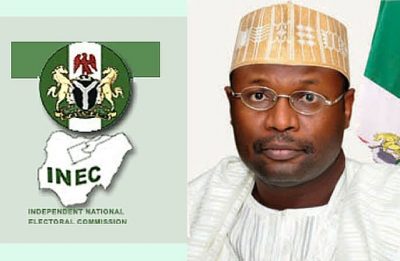The Chairman of the Independent National Electoral Commission (INEC), Prof. Mahmood Yakubu, yesterday said the will of voters will determine the outcome of the next general elections.
He also said the number of voters in the country has hit about 80million mark although it could be higher before the next poll.
He confirmed that there will be no electronic voting in 2019 but technology will be deployed to make the process credible.
He said the nation has 68 political parties at present with 138 applications still pending.
Yakubu, who made the disclosures in a paper at the ongoing 67th World Congress of the International Press Institute (IPI), said 2019 general elections are the most deliberately well-planned in Nigeria so far.
He said: The 2019 general elections will involve the largest number of registered voters in our history. We are currently inching closer to 80 million voters although the nationwide voter registration exercise is ongoing. The figure will certainly rise above 80 million registered voters.
“The largest number of political parties will field candidates in the elections. There are 68 political parties at present. However, with 138 applications from associations seeking registration as political parties, the number is set to rise higher. The political parties will contest in elections into 1,558 national, state as well as local constituencies in the Federal Capital Territory (Abuja).
“From the statistics of new voter registration nationwide, youths will play a far greater role in the elections and processes thereof in 2019 than in previous elections.
“There is also increasing determination by marginalized groups such as women, youths and Persons With Disabilities (PWDS) for greater participation that ever before and we are working with these groups to facilitate their full participation in the electoral process.
“Clearly, the 2019 general election is the most deliberately well-planned election in Nigeria so far. We have formulated, validated and published the Strategic Plan (2016-2021), the Strategic Programme of Action and the Election Project Plan with the full participation of all stakeholders and development partners.
“As we are planning, we are also test running our plans. We have been fortunate to have conducted more off-season elections than any commission in the history of our democracy: re-run elections (by court order following successful litigations), bye-elections and end-of-tenure elections.
“So far, we have conducted elections into 180 constituencies, the last one about three weeks ago (Ibarapa East State Constituency in Oyo State) and the next one in three weeks (Ekiti governorship election scheduled for July 14, 2019).
“Each of the elections we have conducted so far is a remarkable improvement on the previous one in terms of preparations and outcome, ranging from the deployment of personnel, functionality of technology and the speedy collation, transmission and declaration of results.
“There is also a remarkable reduction in pre and post-election litigations challenging the outcome of the elections. Most remarkably, elections are won and lost irrespective of incumbency at state level.
“I want to assure this congress that the will of the Nigerian voter will continue to prevail. Nothing but the votes cast by citizens will determine the outcome of elections”.
Yakubu said although there will be no electronic voting in 2019, INEC will deploy in technology in the process.
He added: “Turning to the use of technology in elections, we shall continue to deepen its deployment until such a time when we can fully automate the entire process. There will be no electronic balloting in 2019, but technology is already being used in many aspects of the processes.
“Electronic voting should be the ultimate step in a chain involving five processes: electronic voter register, accreditation, balloting, collation and transmission of result.
“At present, the commission has a more robust voter register than at any time in our history. Accreditation of voters (and storage of accreditation data) is also electronic while we are piloting the electronic collation and transmission of results.
“What remains is to bring these processes into a voting machine to complete the chain. I am confident that full automation of our electoral processes is only a matter of a short period of time.”
He assured the Nigerian media and international ones that they will be fully involved in the electoral process.
He said the forthcoming elections will further underscore the maturity of our electoral democracy.
He said: “To enhance our transparency, we have been working very closely with stakeholders, including the media.
“At the moment,the INEC has accredited correspondents from 85 media organizations to cover our activities all-year round. The number is growing and our doors remain open to all, We hold regular quarterly meetings with the media and other stakeholders.
“I have no doubt that the 2019 general elections will be the most widely covered event in Nigeria. The Broadcasting Organization of Nigeria (BON) has regularly conducted election debates involving candidates at national level. (The Nation)


